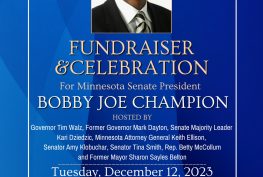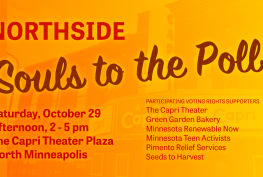Racial bias can’t be blamed on any one culture or music choice
After the tragic killing of Trayvon Martin and the jury trial that followed, the impassioned response among most black Americans demanded respect for the life of Trayvon and, by extension, respect for our community as a whole. Our message was simple: We are Trayvon. President Obama shared this sentiment when he reflected that Trayvon could have been him 35 years ago.
That’s why we were so disappointed to read Peter Bell’s commentary (“Blacks must also look inward, at our culture,” July 23) in which he scolds black Americans, asking, “how can we … demand respect from others when we show so little of it for ourselves?”
From arguing that black people don’t love themselves enough to berating hip-hop culture, Bell’s ramblings either have nothing to do with Trayvon’s killing or are just plain wrong.
To start with, Bell points the finger at the black community for protesting the racial prejudice manifested in Trayvon’s killing when, he argues, our focus should be on protesting black-on-black violence in our neighborhoods.
It’s true — statistically speaking, Trayvon was more likely to be killed by a black peer than by George Zimmerman. And, most agree, there is an epidemic of violence among black youths plaguing our communities and threatening our children’s futures. Yet, that’s not what happened between Zimmerman and Trayvon in February 2012.
As black leaders in Minneapolis, we’ve participated at vigils and demonstrations in the aftermath of black-on-black murders in our own neighborhoods. We’re heartbroken, outraged, and resolved to build safer communities. But linking Trayvon’s killing to a discussion about black-on-black violence completely misses the point and suggests that this unarmed black high school student wasn’t the victim of unwarranted violence, but somehow had it coming.
Bell goes on to blame the black community as a whole — or at least black entertainers and their fans — for perpetuating racial disparities and injustices through hip-hop lyrics that devalue life and celebrate violence. Bell’s accusation “do we really expect white America not to notice how we present ourselves in public or via popular culture?”smacks of the same ignorance that would accuse victims of sexual violence of “asking for it” because of how they dressed or behaved.
We in no way praise or condone dehumanizing lyrics or destructive behavior from black celebrities, but blaming black music for racial profiling and racial inequities of our criminal justice system is ridiculous.
The racial bias that led George Zimmerman to be suspicious of a 17-year-old black pedestrian was formed by much subtler, more encompassing societal forces than hip-hop lyrics. It is the same racial bias many of us have experienced and all of us share. Truly, the stereotyping and uncertainty that Trayvon experienced as he walked home with a bag of Skittles is something blacks in Minnesota experience every day.
But trying to blame racial bias in America on any one culture or form of expression is as pointless as it is absurd. Instead, we echo President Obama’s observation that, despite this tragedy and the hard emotions it has stirred up, things are getting better and each generation pushes us closer to achieving the dream of the Rev. Martin Luther King Jr.
Certainly, we still face serious challenges in Minnesota with some of the widest and most pronounced racial gaps in educational achievement, household income, life expectancy and incarceration rates. Yet, we’ve witnessed again and again how these challenges motivate members of the state’s black community to come together in ways both large and small that uplift our brothers and sisters in the pursuit of a brighter tomorrow.
For example, every year we see the black community raise scholarship funds and open doors for young people to grow a legacy of high-achieving students. Right now, black churches across the metro area are organizing health initiatives promoting healthy living to battle high rates of heart disease, cancer and diabetes.
As the cameras focused on the destruction when a tornado tore through north Minneapolis in 2011, we saw neighbors lift up one another and literally rebuild their community together. This same community (often thought of as Minnesota’s most predominately black neighborhood) is home to the Northside Transportation Network, a civically minded group focused on growing economic opportunities through transit-oriented development.
And as black leaders in the state Legislature, we were proud to be among a coalition of lawmakers that worked to block in Minnesota the exact same “shoot first, ask questions later” law that put George Zimmerman in a position to shoot an unarmed teen in Florida.
These are just a few examples of black people committed to the growth, not the destruction, of our community. An honest evaluation of today’s black community and its image can’t begin and end with hip-hop music and ignore the good works of so many other groups and individuals.
We challenge Mr. Bell to take another look at how blacks here in Minnesota, driven by deep self-respect, are standing up to create a better future for our children and for our entire nation. Even he would agree that, in the famous words attributed to Gandhi, we must be the change we wish to see in the world.
Jeffrey Hayden and Bobby Joe Champion, both Democrats from Minneapolis, are members of the Minnesota Senate.



